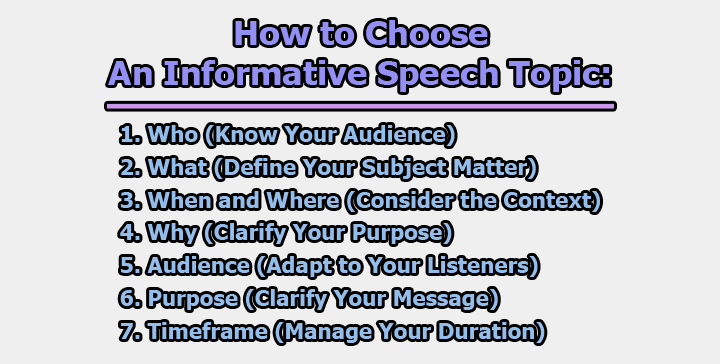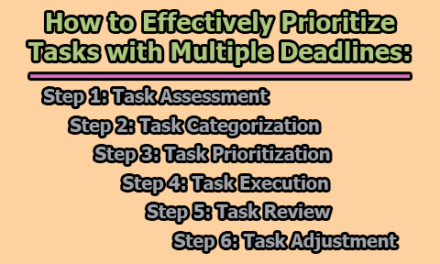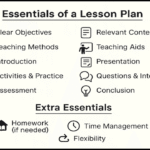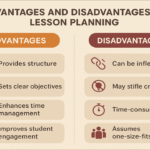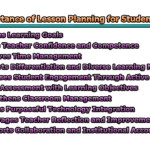How to Choose an Informative Speech Topic:
Selecting an informative speech topic can be a daunting task, as it sets the tone for your entire presentation. Whether you are a student working on an assignment or a professional delivering a presentation, the right choice of topic is crucial for engaging your audience and effectively conveying information. In this guide, we will explore how to choose an informative speech topic.
1. Who (Know Your Audience): Understanding your audience is the first step in selecting an informative speech topic. Consider their age, background, interests, and knowledge level. Tailoring your topic to match the audience’s preferences ensures that your speech is relevant and captivating. For instance, a topic suitable for a group of students may not resonate with a corporate audience.
2. What (Define Your Subject Matter): Once you’ve identified your audience, pinpoint a subject that aligns with their interests and needs. Your speech should aim to educate, clarify, or provide valuable insights. Choose a topic that allows you to share credible information and leaves a lasting impact on your audience. Be mindful of the complexity of the subject matter and ensure it can be effectively communicated within the given timeframe.
3. When and Where (Consider the Context): The context of your speech is vital in topic selection. Consider the timing and location of your presentation. If you’re speaking at a conference, a topic related to current industry trends may be appropriate. On the other hand, a classroom setting might require a more educational and foundational topic. Additionally, factor in the cultural and social context to ensure your topic is relatable to your audience.
4. Why (Clarify Your Purpose): Clearly define the purpose of your informative speech. Are you aiming to educate, persuade, or simply provide an overview? Understanding your objective helps in narrowing down potential topics and structuring your content effectively. Your topic should align with your purpose, guiding you to deliver a focused and impactful speech.
5. Audience (Adapt to Your Listeners): Consider the demographics, interests, and expectations of your audience. A topic that resonates with them is more likely to capture their attention and keep them engaged. If you’re unsure about your audience’s preferences, conduct surveys or interviews to gather insights. This proactive approach ensures that your informative speech is well-received by those you are addressing.
6. Purpose (Clarify Your Message): Identify the core message you want to convey through your speech. Whether it’s raising awareness about a social issue, providing practical tips, or explaining a complex concept, your topic should align with your central message. A well-defined purpose serves as a guiding principle throughout the research and preparation stages of your speech.
7. Timeframe (Manage Your Duration): Consider the allotted timeframe for your speech when selecting a topic. Ensure that your chosen subject can be adequately covered within the given time constraints. Avoid topics that are too broad or complex to be effectively communicated within the allotted time. A well-paced speech allows you to engage your audience without rushing through essential information.
In conclusion, choosing an informative speech topic requires a thoughtful and strategic approach. By considering your audience, defining your subject matter, and understanding the context and purpose of your speech, you can select a topic that resonates with your listeners and effectively delivers the intended message. Keep in mind the importance of adapting to your audience, clarifying your purpose, and managing your timeframe to ensure a successful and impactful informative speech.

Assistant Teacher at Zinzira Pir Mohammad Pilot School and College

